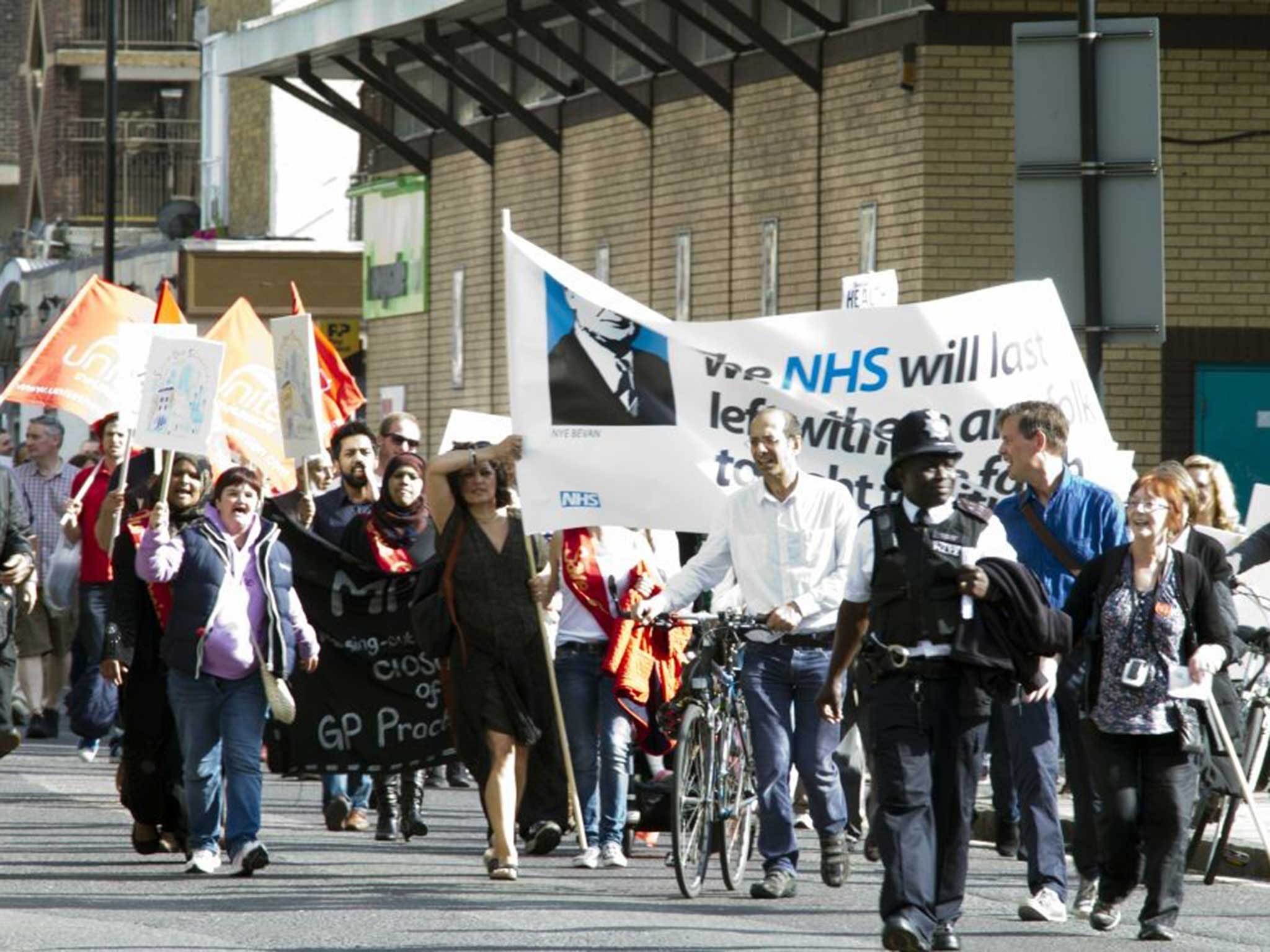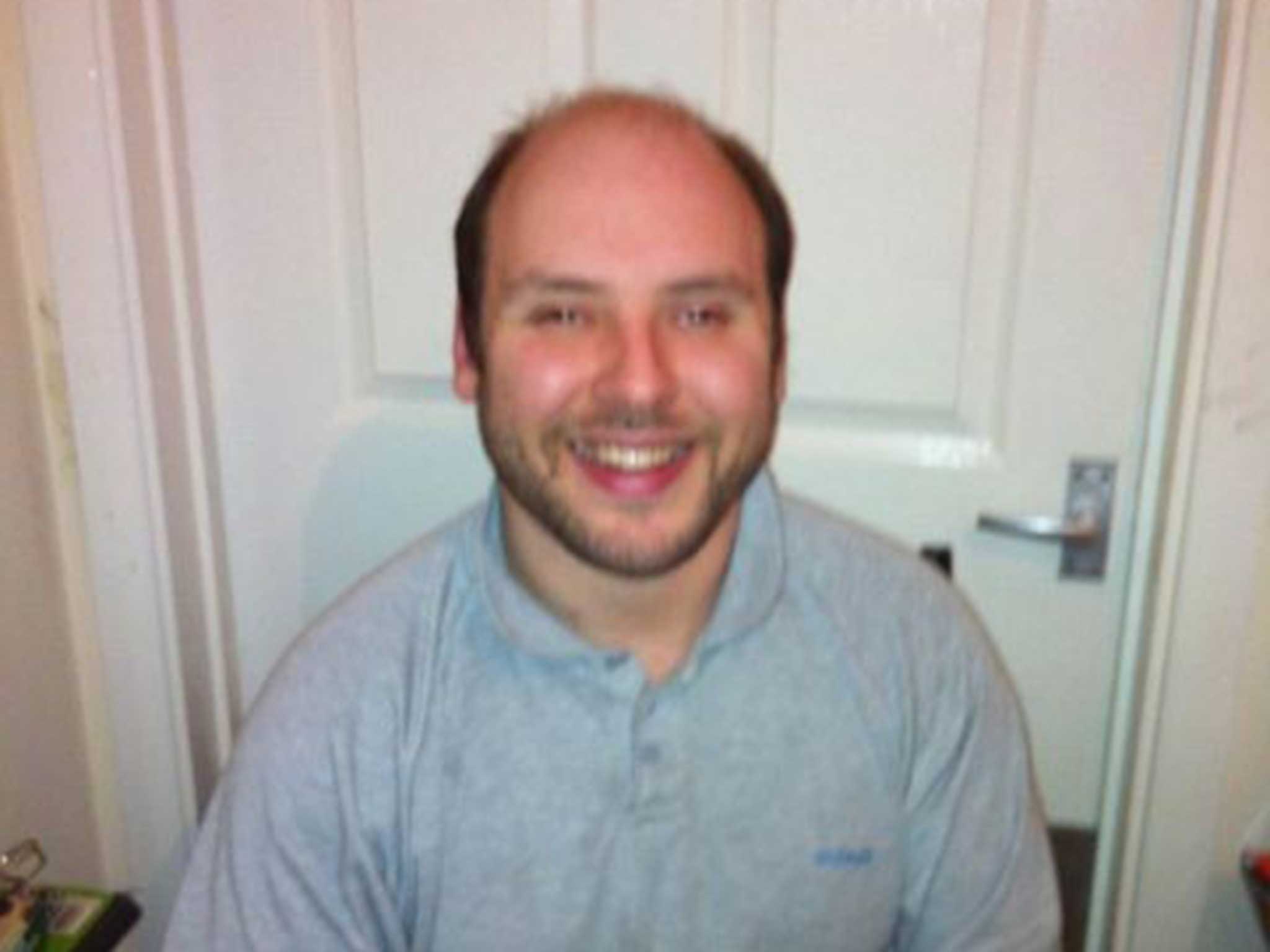Disabled patient takes Health Secretary and the NHS to court
The most disadvantaged will lose local doctors as the BMA names 98 practices at risk due to government funding changes

Your support helps us to tell the story
In my reporting on women's reproductive rights, I've witnessed the critical role that independent journalism plays in protecting freedoms and informing the public.
Your support allows us to keep these vital issues in the spotlight. Without your help, we wouldn't be able to fight for truth and justice.
Every contribution ensures that we can continue to report on the stories that impact lives

Kelly Rissman
US News Reporter
Jeremy Hunt is facing an unprecedented High Court challenge over the potential closure of dozens of GP surgeries in inner-city areas, as the Government comes under increasing criticism for failing to bring down GP waiting times.
The lawsuit, brought by a disabled Londoner whose surgery has warned patients it could close by April next year because of cuts to its government funding, claims that the NHS in England and the Health Secretary have acted unlawfully, by failing to take into account the impact of potential practice closures on deprived areas and on patients with disabilities.
Changes to the way GP surgeries are funded have threatened up to a hundred practices with closure, potentially affecting 700,000 patients. The changes, which will see a funding stream called the minimum practice income guarantee (MPIG) scrapped, and more funding going to areas with older populations, will disproportionately affect surgeries in inner-city areas with deprived patient groups, opponents say.
The Department of Health says that millions of pounds of funding will be reallocated more fairly across the country.
The Jubilee Street Practice, in the east London borough of Tower Hamlets, had to warn patients at the end of last month that it might have to close next year because NHS England had not yet delivered on a promise of financial support to save the surgery and others like it from the impact of losing MPIG funding, which will be phased out over the next seven years.
The practice told patients that "funding is now being transferred to other GP practices which, by and large, serve more prosperous patients and communities".

Now a patient at Jubilee Street, 35-year-old wheelchair-user Danny Currie, who has cerebral palsy, schizoaffective disorder, and epilepsy, has launched a lawsuit against NHS England and the Secretary of State for Health. He told The Independent on Sunday that the closure of the practice, which has catered for his complex health needs for 30 years, would severely affect the quality of care he would receive.
"People who might visit their GP on an infrequent basis may not realise the lifeline it is to those of us with more complex medical needs who need to visit more regularly and rely on seeing a GP who understands our needs and will accept us on to their lists," he said. "The shutting of the Jubilee practice would be a body blow for me and for the very many people who use the surgery.
"I just don't know where I could go if it closes and how far I'd have to travel, as another five GP practices in Tower Hamlets are at risk if these funding cuts continue."
Richard Stein, a partner at the Leigh Day law firm, which is representing Mr Currie, said that, in bringing in the GP-funding reforms, the Government and NHS England had not paid due regard to commitments to reduce inequalities made in the Health and Social Care Act 2012 and the NHS Act 2006.
"They are phasing out MPIG without any arrangement... [for] the particular issues around deprivation and health inequalities," he said. "They are saying they will put money back into general GP capitation payments, which effectively means they are moving money from areas of deprivation to more healthy patients …. The effect of not having proper GP services for someone in Danny's circumstances is that he ends up needing more hospital care, and that costs the NHS much more. It's very shortsighted."
The Jubilee Street Practice, which has a list of 11,000 patients, has provided medical care in east London for 75 years, has achieved all government targets and has a 94 per cent patient-satisfaction rate.
It is one of 98 practices identified by NHS England as being at risk of closure because of changes to GP funding. The British Medical Association (BMA) believe the number could be even higher, with student medical practices and surgeries serving remote rural areas with small patient lists also at particular risk.
GPs and patients delivered a petition to No 10 last week to protest against the threatened closures.
The dispute comes amid increasing concern that GP surgeries are struggling to cope with ever-growing patient demand. The BMA has warned that two-week waits for appointments have become commonplace at many practices, particularly at inner city surgeries with long patient lists. The Royal College of General Practitioners (RCGP) has told the Government that GPs need a greater slice of the total £110bn NHS budget. At the moment, they are receiving a record low of 8.39 per cent of the NHS budget, despite carrying out 90 per cent of patient contacts, the RCGP claims.
The Department of Health said that it could not comment on Mr Currie's legal action. Formal letters before claim have been sent to Mr Hunt and to NHS England.
NHS England did not respond to a request for comment.
Join our commenting forum
Join thought-provoking conversations, follow other Independent readers and see their replies
Comments